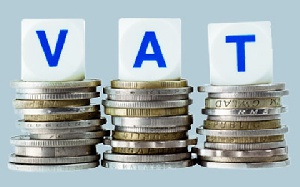The GHANA Chamber of Mines says government’s inability to finalize the needed legislation aimed at ensuring the implementation of the Value Added Tax (VAT) Refund Policy is seriously affecting the operations of miners in the country.
The Chamber says currently the mining industry has an inordinately large amount of surplus VAT, amounting to over GHc250 million yet to be refunded by Ghana Revenue Authority(GRA) and this according to him, is having adverse effects on cash flows of mining firms in the country, particularly in the face of recent dip in prices of the commodity.
The acting Chief Executive Officer of the Ghana Chamber of Mines, Mr. Sulemanu Koney, who expressed these sentiments at a media interaction in Kumasi, noted that the government has on several occasions expressed its intention to implement the VAT Refund Policy, its demand for the promulgation of a law as a condition for the formal implementation of the policy is a serious disincentive to mining firms.
The interaction is an annual exercise to engage the media on the performances and challenges confronting the mining sector in the country. He contended that enough was not being done on the part of government to ensure the promulgation of the mining law, adding that the government was unwilling under such circumstance, to push through the legislation.
Mr. Koney further observed that a request for government to offset the debt through a waiver has not also materialized as the government was bent on keeping hold of the refund until the passage of the legislation.
He also cited absence of mining policy, poor railway network, high cost of electricity tariffs and illegal mining as some of the major challenges militating against the successful operations of mining firms in the country.
The Chamber of Mines Boss contended that neighbouring countries such as Ivory Coast and Burkina Faso have overtaken Ghana in the area of exploration and Greenfield prospecting because of relatively favourable legislative conditions prevailing in those countries and therefore appealed to government to take a second look at the mining environment in order to attract more investments into the sector.
“Our members continue to be burdened with huge taxes despite the poor performance of the commodity on the world market; the cost of electricity is too huge as the industry still shoulders some of the cost of residential consumption of power, there is also the issue of illegal mining and absence of railway infrastructure,” Mr. Koney lamented.
The acting CEO argued that in the face of all these frustrations, mining firms continue to honour their tax obligations, pointing out that the sector continues to remain the leading contributor to Ghana’s revenue stock.
Giving reports of the performance of the mining sector in 2013, Mr. Koney said its members contributed GHc1.1 billion to the GRA, representing 18.7% of direct tax and 14.3% of total revenue mobilized by authority in 2013.
He said though the figure represented a decline in the preceding year of 2012 which recorded about GHc1.5 billion, the situation was largely due to the dip in prices and global challenge which currently confront the mining sector.
Denying the assertion that mining has not made any significant contribution to the development of the lives of people in catchment communities, Mr. Koney noted that the sector currently offers over 17,000 direct jobs to Ghanaians, with most workforce coming directly from the local people as contained in the local content regulations.
He stated that mining firms have also contributed tremendously to the development of communities in terms of provision of amenities and infrastructures as part of corporate social responsibilities.
Mr. Koney further warned that the sector was expected to record further negative growth and is projected to be less buoyant in 2014.
On the massive job losses in the sector, Mr. Koney said though the situation was regrettable, there was nothing the Chamber could do as the move was the only pragmatic solution to ensure that its members stayed in business.
“No business will continue to sit down and watch without taking any action in the face of decline in revenue; no matter what something has to give, the mining sector is no longer attractive like it used to be and these are realities,” He emphasized, stressing however that adequate compensations are giving to retrench workers in order to help them remain on their feet.
General News of Saturday, 4 October 2014
Source: The Chronicle













